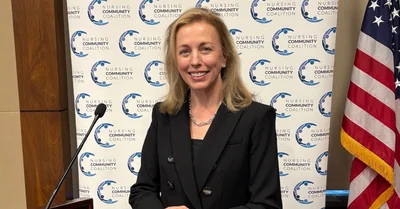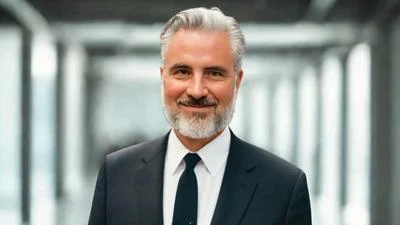Coy Garrison, a partner at Steptoe and Johnson LLP and former counsel to Securities and Exchange Commission Commissioner Hester Peirce, recently commented on the future of the digital asset ecosystem.
Garrison's remarks came during a June 13 House Financial Services Committee hearing titled The Future of Digital Assets: Providing Clarity for the Digital Asset Ecosystem, when lawmakers and crypto experts discussed the recently released Digital Asset Market Structure Discussion Draft.
“Throughout my career, I have sought to bring regulatory clarity to the digital asset industry. Not surprisingly, I did not always see eye-to-eye with my colleagues at the SEC on issues relating to digital assets,” Garrison said in his testimony. “My experience in private practice has reaffirmed my belief that most market participants want to comply and will do so when provided with clear rules.
"I also know from my time at the agency that the SEC staff is filled with capable and dedicated securities lawyers that could provide the industry a workable regulatory framework, if the SEC staff were empowered to do so," Garrison added, according to the release. "I hope you will allow them the opportunity through this legislation.”
The 162-page discussion draft includes amendments to the Securities Act of 1933 and the Commodity Exchange Act, which would add terms like "blockchain," "source code," "digital commodity custodian" and "digital asset issuer." The draft bill also lays out provisional requirements for digital exchanges, brokers and dealers to register with the Commodity Futures Trading Commission or the SEC.
The hearing took place shortly after the SEC filed lawsuits against leading cryptocurrency exchanges Binance and Coinbase for allegedly violating securities laws, with SEC Chair Gary Gensler claiming "everything other than Bitcoin" is a security and therefore falls within the SEC's regulatory jurisdiction, Coin Telegraph reported.
Coinbase Chief Legal Officer Paul Grewal said the SEC approved Coinbase's application to go public in 2021 in a recent Twitter thread. He noted the SEC leaders changed their mind on what is allowed.
He also said Coinbase's challenge in becoming registered is unique to the SEC, and Coinbase has not had the same problem with other regulatory agencies or in other countries, according to the Twitter thread.
"In 2018, we acquired two broker dealer licenses in an effort to become regulated by the SEC," Grewal said on Twitter. "These licenses are currently dormant, and we have been unable to activate them with the SEC for digital asset securities."
He noted it's been possible to "successfully become a licensed and regulated crypto business in a number of other jurisdictions around the world, including Singapore, Ireland, Australia and Germany" for many year, the Twitter thread reported.
"We've also been able to successfully become regulated by another U.S. federal regulator, obtaining our DCM and DCO license from the CFTC," Grewal added, according to his Twitter thread. "And by many U.S. state regulators. The SEC remains a sole outlier here."
Coinbase CEO Brian Armstrong said he sees the litigation as an opportunity to gain regulatory clarity for the industry, according to a June 6 Twitter post after the SEC filed its lawsuit against the company.
"We're proud to represent the industry in court to finally get some clarity around crypto rules," Armstrong said on Twitter.
Binance responded to the SEC's lawsuit in a blog post, saying, "Unfortunately, the SEC’s refusal to productively engage with us is just another example of the Commission’s misguided and conscious refusal to provide much-needed clarity and guidance to the digital asset industry."
Changpeng Zhao, the Canadian CEO and founder of Binance, has advocated for more regulation, arguing it helps bring trust and growth to the industry, according to a January Twitter thread.
“Regulatory clarity is needed ASAP. I have said this before and will say it again: the best form of user protection is globally consistent, risk-based regulation," he said in the Twitter post. "Outright bans will just lead to users operating in the shadows, at their own risk, and without any safety net. User protection and market integrity are enhanced when lawmakers and regulators expand the scope of permissible activities. We have seen this in many other industries: tradfi, health care, pharma, internet, content, etc.”









